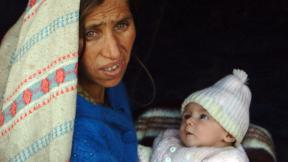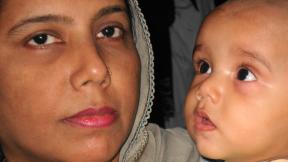
Science is at a loss in understanding the concept of the soul. In most instances, it denies the existence of the soul and chalks up human experience only as a combination of physiological and chemical reactions. Recent scientific advances continue to point at an unseen force possessing the human body that has escaped the modern tools of measurement. To account for the presence of fitra (original disposition or natural constitution or innate nature based on goodness and purity) in totality of the human experience, secular scientists give it fancy names such as mindfulness or spiritualism or meta cognition, and more. Though science is lagging in grasping the concept of soul, religious traditions describe it from a different vantage point.
Islam teaches us that human life comes into being when a soul is unified with a material body. A soul is what anchors the fitra to the human body, a vessel for the existence on Earth. Let’s try to increase our understanding of the soul as it is described in Islamic traditions so we can pass this essential knowledge of our existence to future generations.
What is a Soul, Ruh?
A simple definition of a soul is that it is a non-material form that Allah commands to exist and then it does. Just like all the laws of physics, chemistry, biology, time, etc. are created by Allah and follow His command upon set rules, so does our soul or ruh. Souls do not have a gender or age. They are not defined by or confined to the laws of space and time. Allah says in the Quran:
“And they ask you about the soul. Say, “The soul is something from the command of my Lord, and you are not given from the knowledge but a little.”
(Surah Al-Isra, 17:85)
Journey of Soul
Our souls exist in various realms after its creation until they are gathered again at death, then await the judgment of our Lord. Our souls’ journey began after the creation of Adam peace be upon him, our father, the first man. The first of the creation of mankind received his soul from God after his body was completed in its perfect form. In this journey, our souls travel from realm to realm until judgment day. Then they find their final abode, either in the Paradise or Hell.
Ibn Hibban reports in his Saheeh from Anas ibn Malik that Allah's Messenger, peace and blessings be upon him, said:
"When the soul was blown into Adam and it reached its head, he sneezed and said, 'All praise is due to Allah, Lord of the worlds,' so He, blessed and exalted is He, replied, 'May Allah have mercy on you."
Saheeh: Ibn Hibbaan: 14/37, No. 6165
It’s amazing and beautiful to know that upon the merging of his soul and body, first act of our father, Adam, was to be grateful to our omnipotent creator, God. This is the nature of our souls. They are upon purity and goodness, until we do to them otherwise.
Creation
After the creation of Adam, peace be upon him, Allah poured forth the souls of his entire progeny as described in the holy books. Adam was blessed to meet all his children from the first day to the last. Since then, our souls have existed in the Realm of the Souls (A’lamul Arwah) awaiting to be united with our bodies at designated times. Prophet Muhammad, peace and blessings be upon him, told us that our souls huddle and gather in the Realm of the Souls. Abu Dawud, Adab 19, (4834)
Some of us meet each other there and get along, and some do not. These interactions and feelings linger in the material world in our time on Earth when we find each other and feel an indescribable affinity. How beautiful that good souls relate to each other across the realms, from the beginning of their creation to placement in the Paradise.
Abu Hurairah reported that Allah's Messenge, peace and blessings be upon him, said: When Allah created Adam, He wiped his back and every being that He was going to create up to the Day of Resurrection fell from his back. He placed between the eyes of every one of them a flash of light, then presented them to Adam, who asked, ‘My Lord, who are these?’ He said, ‘These are your offspring.…’”
Hasan Saheeh: AI-Tirmidhi: Book of Tafseer of the Quran: Ch. Concerning Surah Al A'raaf, No. 3076
Oath
Upon our creation, we took an oath to worship Allah as our Lord and Creator and that is the only imprint, we carry with us to this material world. This imprint/feeling/memory guides us to be on the fitra, our natural disposition to be on the goodness and crave to worship the Creator. We remain on fitra until it is polluted from the experience of our existence in this world. For those of us who strive to purify themselves, we remain steadfast on our oath and fitra.
And ˹remember˺ when your Lord brought forth from the loins of the children of Adam their descendants and had them testify regarding themselves. ˹Allah asked, “Am I not your Lord?” They replied, “Yes, You are! We testify.” ˹He cautioned, “Now you have no right to say on Judgment Day, ‘We were not aware of this.”
(Surah A- A’raf, 7:172)
Life in this World
In Saheeh Bukhari, a hadith is narrated by Abdullah describing the entrance of souls in the bodies of fetuses in their mothers’ wombs.
Allah's Apostle, the true and truly inspired said, "(as regards your creation), every one of you is collected in the womb of his mother for the first forty days, and then he becomes a clot for another forty days, and then a piece of flesh for another forty days. Then Allah sends an angel to write four words: He writes his deeds, time of his death, means of his livelihood, and whether he will be wretched or blessed (in religion). Then the soul is breathed into his body.
(Saheeh Bukhari, Volume 4, Book 55, Number 549)
After the birth of our bodies, we grow to absorb the experiences of the material world and let us be molded into who we become. While deep down, we carry the imprint of our oath to Allah. For those of us who listen to this inside voice, we continue to strive to uphold the oath in the best way possible. And the others, drown lusting after the earthly existence.
Death
The soul leaves the body when the body runs out its physical existence by either naturally aging or a profound physical injury, at the appointed hour. Leaving of the soul ceases all physical and biological functions. Angels gather the soul and travel with it to the realm of the unseen. There the body and the soul wait for the loved ones to leave then the soul is returned to the place between the shroud and the body in the grave for the first accounting in the grave.
Our souls leave our bodies at another time, too, while we sleep. Sleep is called a lesser death as our soul is still bound to our body and does not completely disconnect from the body, unlike death. Scholars describe the connection during sleep as if the soul is tied to the body by a thread.
“Allah takes the souls at the time of their death, and those that do not die [He takes] during their sleep. Then He keeps those for which He has decreed death and releases the others for a specified term. Indeed, in that are signs for a people who give thought.”
(Surah Az-Zumar, 39:42)
Barzakh
The word barzakh means a drawback, barrier, or curtain between two things. Our soul is taken to the Realm of Barzakh until it is time for the questioning to begin in the grave. Then the soul is returned to the grave. Once the soul has completed the initial accounting by the angels, it enters the Realm of Barzakh again, inter-space between the material and spiritual.
This is another world and a realm altogether and can be considered as a lesser type of Paradise and Hell. This is the intermediary state between the two worlds of material and non-material. In the Realm of Barzakh, each soul encounters an experience based on the deeds of the material world. A scholar of Islam, Ibn Qayyim al-Jawzīyyah, describes that the soul is still connected to the body, thus allowing the body and soul both to experience the bliss or punishment. And there, our souls wait for God to wrap up the heavens, suns, moons, and the earths and for the Day of Judgement to begin.
Day of Resurrection
The soul’s journey continues forward after the Last Day of the worlds, until the soul and body are united again. Allah sends rain on the new Earth and our bodies grow in the grave. Then the souls from Barzakh are sent to unite with our bodies until we emerge humbly from our graves in awe of the new reality.
“Abu Huraira said, "Allah's Messenger (ﷺ) said, 'Between the two sounds of the trumpet, there will be forty." Somebody asked Abu Huraira, "Forty days?" But he refused to reply. Then he asked, "Forty months?" He refused to reply. Then he asked, "Forty years?" Again, he refused to reply. Abu Hurayrah added, “Then (after this period) Allah will send water from the sky and then the dead bodies will grow like vegetation grows. There is nothing of the human body that does not decay except one bone; that is the little bone at the end of the coccyx from which the human body will be recreated on the Day of Resurrection.”
(Narrated by al-Bukhaari, 4935)
This is the story of our soul’s journey. The gist of this story is to believe with certainty that we are more than our bodies and our experiences of this material world. In the larger scheme of things, the time spent in the material world is miniscule compared to the journey our souls have been on from the onset of creation. Therefore, let us strive to be good in our time on Earth to improve the quality of our existence in the everlasting abode of Paradise.
Tayaabah Qazi has a master’s degree in Educational Leadership, an AdminI/II Certification from the State of Maryland Education Department, and a Secondary Teaching Certification in Chemistry as well as a CPP certificate. She has served in the education field as a teacher and an administrator of schools. Recently, she served at Community College of Baltimore County as a Coordinator of Adult Basic Education program. Currently, Tayaabah is the Director at Prime Learning Solutions. She has been a long-time resident of Maryland for 17 years, with her family, but hails from Southern California. She is also a staunch believer of the 4 Cs: Compassion. Commitment. Conversation. Cultivation.








Comments
Surah kahf in Roman English
This is a thoughtful reminder about the reality of the soul and how Islam explains our journey beyond the physical world. It also encourages us to stay connected to spiritual guidance, and reading surah kahf in roman in english, is a beautiful way to strengthen that connection.
Location
Add new comment